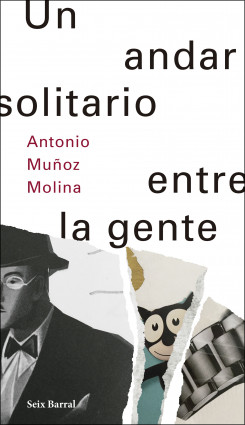

This experiment has been based on Muñoz Molina’s mentioning that he likes handmade things; the blogger used ink instead of a pencil for better visibility, next time he will write a little bigger, apologies…
El País in English offers an interview with the author (Feb. 19, 2018)
On March 12, 2018, the longlist for the Man Booker International Prize 2018 was announced, and Antonio Muñoz Molina is on it with the book Like a fading shadow

Original title: Como la sombra que se va (2014). More information from the publisher; a review from Kirkus. And the blog post from 2014.
UPDATE November 2021:
Un andar solitario has been published in English as To Walk Alone in the Crowd (publisher’s page). There is a review from Kirkus. The NY Times and the Wall Street Journal have also reviews behind their respective paywalls. The novel also won the 2020 Prix Médicis étranger (Wikipedia).
SOURCE: Seix Barral (Planeta; publisher)
